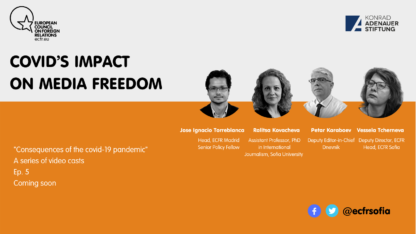Europe?s social deficit and the next European elections
Elections to the European Parliament offer an opportunity to discuss Europe?s left-right dimension

Head, ECFR Madrid
Senior Policy Fellow
Technology and geopolitics, EU strategic autonomy; disinformation and influence operations
Spanish, English
José Ignacio Torreblanca is a senior policy fellow and head of the Madrid office of the European Council on Foreign Relations, a position he has held since the launch of ECFR across Europe in 2007. Torreblanca is also Professor of Political Science at Universidad Nacional de Educación a Distancia (UNED) in Madrid.
He is a weekly columnist in EL MUNDO as author of the blog “Café Steiner” and a weekly contributor on RNE (Spanish National Radio) and RTVE. Previously, he was Editorial Director of EL PAIS where he also authored a weekly column in the International Section and a blog.
Torreblanca holds a PhD in Political Science from the Complutense University of Madrid.
Elections to the European Parliament offer an opportunity to discuss Europe?s left-right dimension
Spain has managed to obtain a seat at the G-20, but it still has to figure out what it wants to stand for
What Obama wants from Europe is a solid partner in a multipolar world, not 27 photo opportunities
Spain?s decision to withdraw from Kosovo will come at a high price to its international image
There are two kinds of European in the continent today; those who have Europe and those who want it
Twenty years after the fall of the Berlin Wall, divisions between the East and West remain too wide
Russia is one of the few countries where economic growth and political freedom have moved in opposite directions. Will the financial crisis help democracy in Russia?
Spain should have nothing to fear from Kosovo?s independence, writes Jose Ignacio Torreblanca
There is nothing wrong in engaging China rather than antagonizing her: but Europe must coordinate its human rights policy towards Beijing
As the US plans to beef up its foreign service, Europe should also consider instilling life to the idea of an integrated diplomatic service, argues Jos? Ignacio Torreblanca
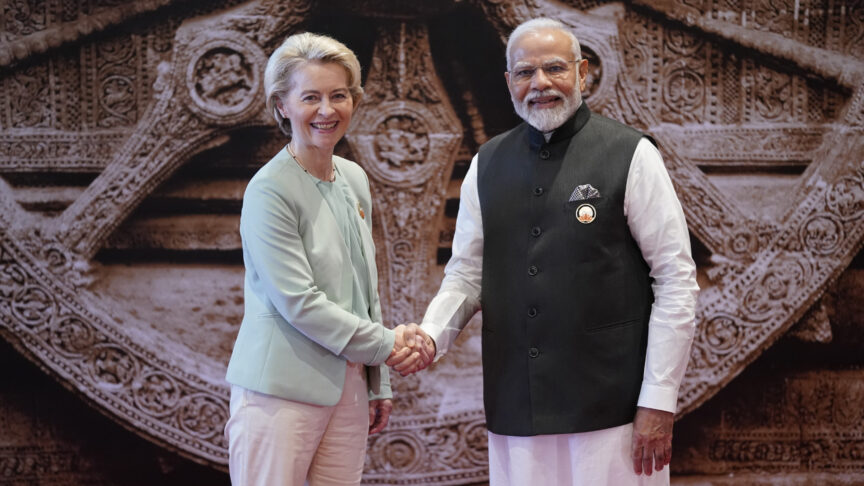
Middle powers are shaping a fragmented world for which Europe is ill prepared. To protect its interests and values, the EU needs a foreign policy strategy that emphasises its wide range of interdependencies

The EU can counter Chinese and Russian influence through a digital alliance with countries in Latin America and the Caribbean
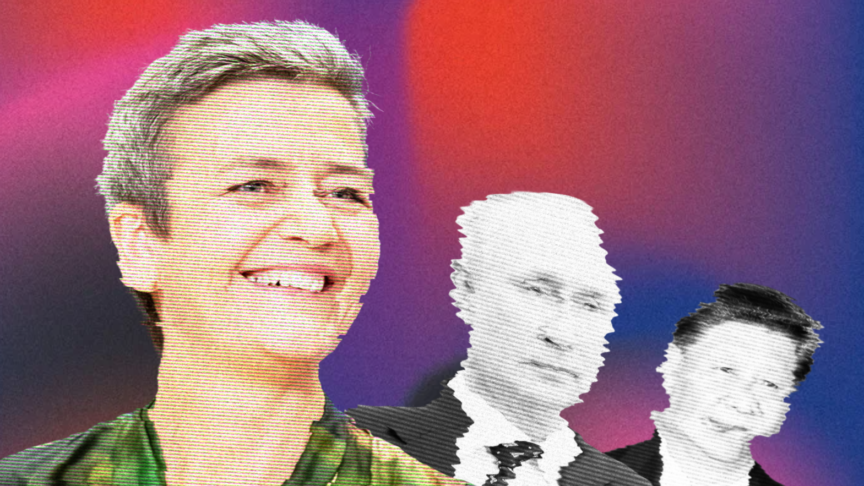
The digital space is a key battleground in today’s global power struggles. For the EU to become a global player in the geopolitics of technology, it needs an ambitious external digital strategy – one that allows it to secure its interests, values, and standing in a world of intensifying geo-technological competition.
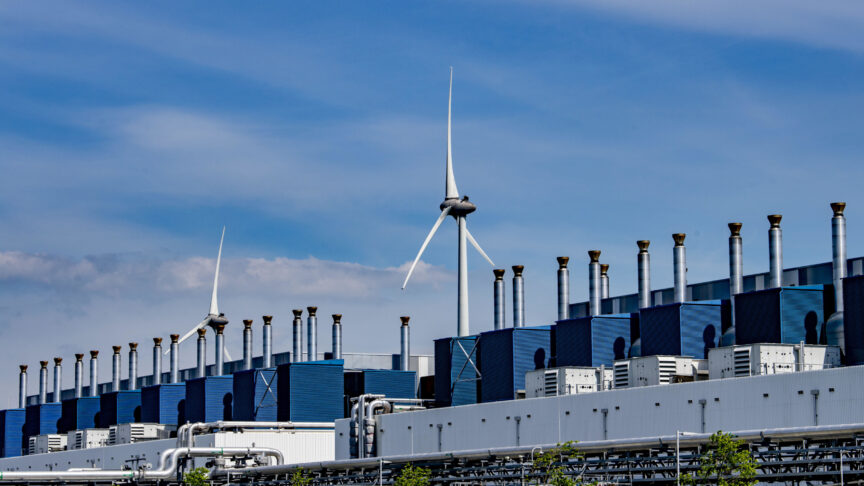
New technologies are a significant force shaping international relations. If the EU wants to be more than a mediator between the US and China, it will need to change its mindset.
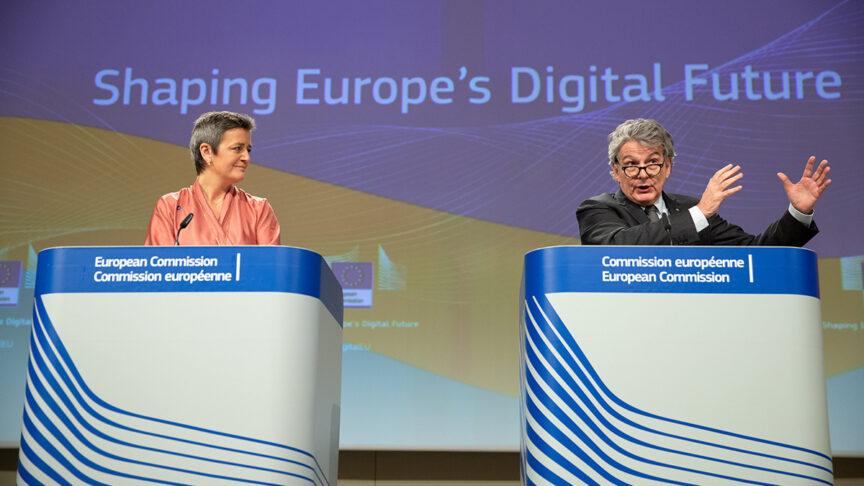
The EU cannot continue to rely on its regulatory power but must become a tech superpower in its own right. Referees do not win the game.
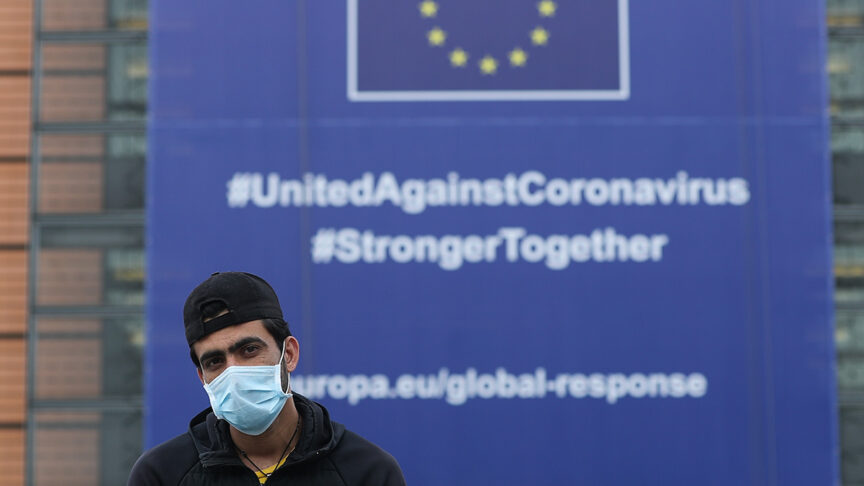
Europe must improve its early warning systems, supply chain resilience, medical R&D, and cyber security and technology, to act decisively in future emergencies
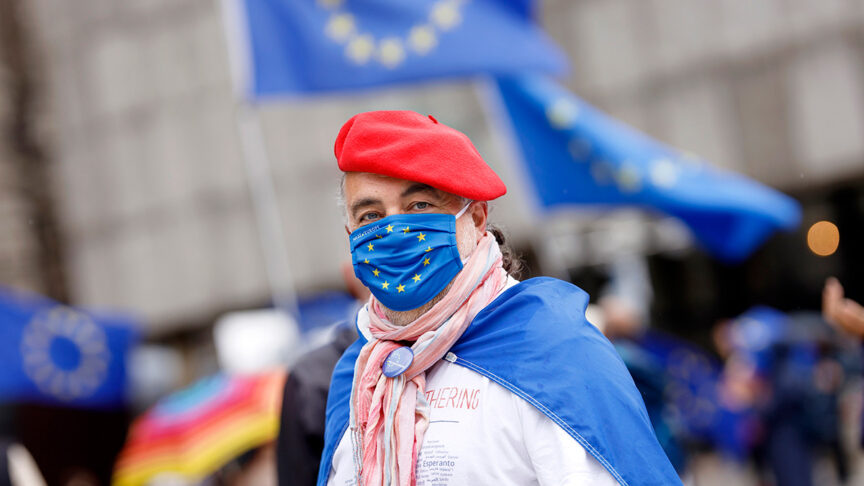
A new survey shows that, after the onset of the covid-19 crisis, there has been a rise in public support for unified EU action to tackle global threats
Spain, and Europe, need a new story about migration – it remains to be seen how the country will put this into practice
The results of the European election confront EU leaders with a considerable challenge: navigating a new, more fragmented, and polarised political environment
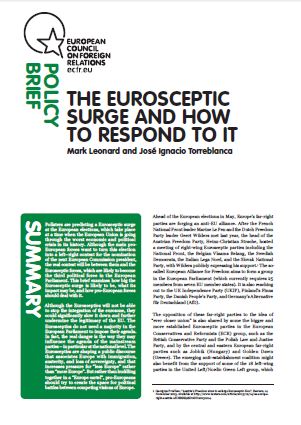
Pro-Europeans should create space for battles between competing visions of Europe
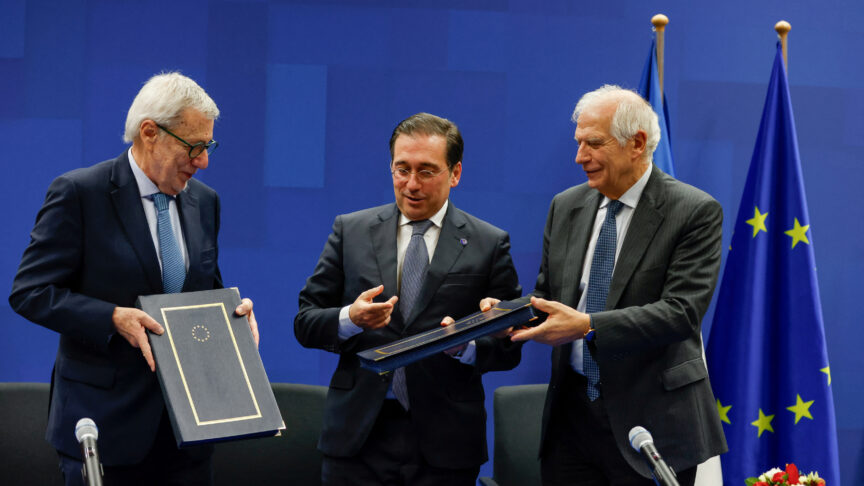
The EU’s and Chile’s enhanced association agreement will strengthen Europeans’ place in the “à la carte” world. The bloc should continue to tackle its dependencies and build mutually beneficial relations with countries across the globe
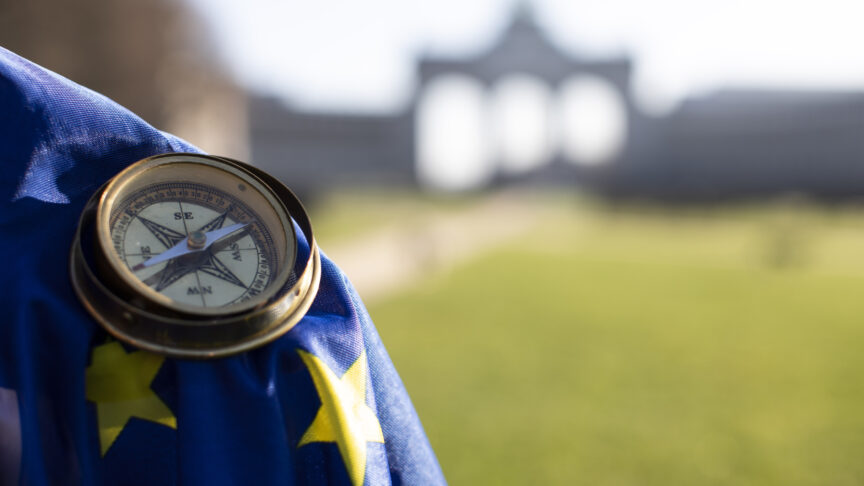
Strategic autonomy is a defensive strategy that sends the wrong message to the world. The EU should instead accept that interdependencies are not only inevitable but desirable, and cultivate them with its allies and partners
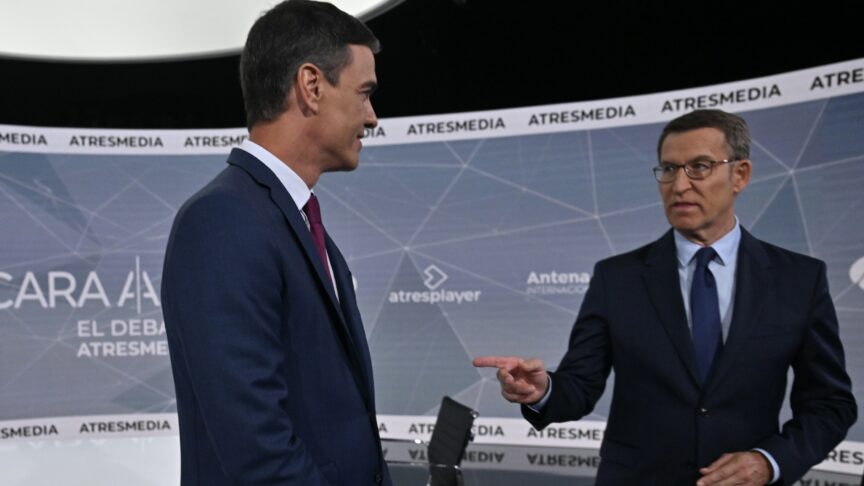
While Spain’s People’s Party leads the polls, obscure alliances and voter concerns leave the country’s future direction – and its impact on next year’s European Parliament elections – uncertain

If the Global Gateway is to compete with the Belt and Road Initiative, it must go big, green, digital, and ethical. And it can prove it in Latin America

The war in Ukraine has reinforced the strategic role of global tech giants in defence and security policy. NATO and the EU should learn from this as they try to deter future aggressors

ChatGPT seems set to shake up the technology industry, but its implications for geopolitics are less clear. We asked ChatGPT what these might be
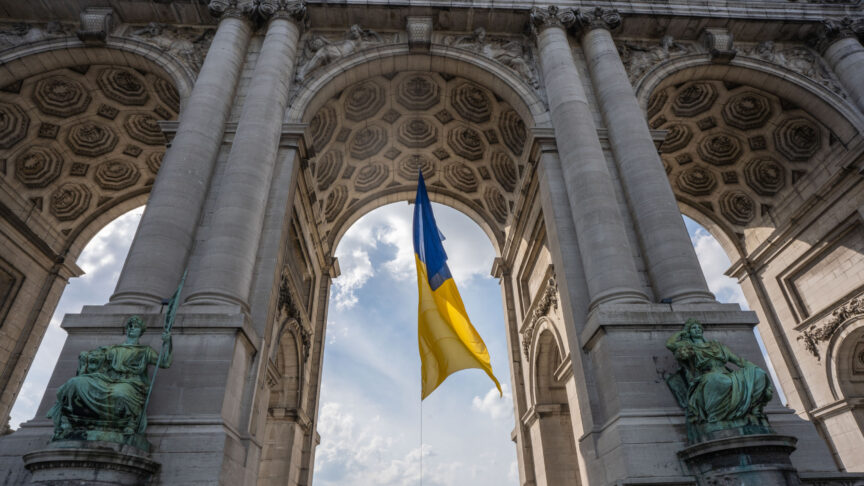
A new compact could allow Ukraine, Balkans states and others to move closer to the EU and drive reform more powerfully than the current rigid rules
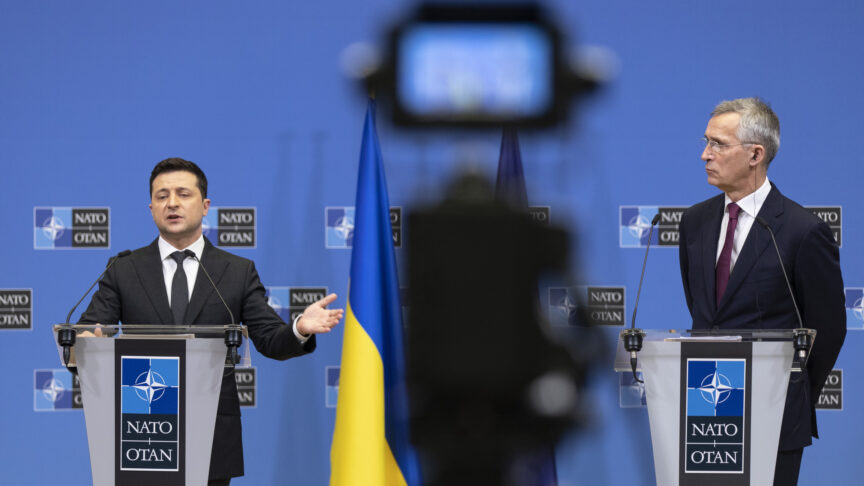
The new European security order should be based on Ukraine’s security, not Russia’s. This will require Ukraine to join NATO and the EU.
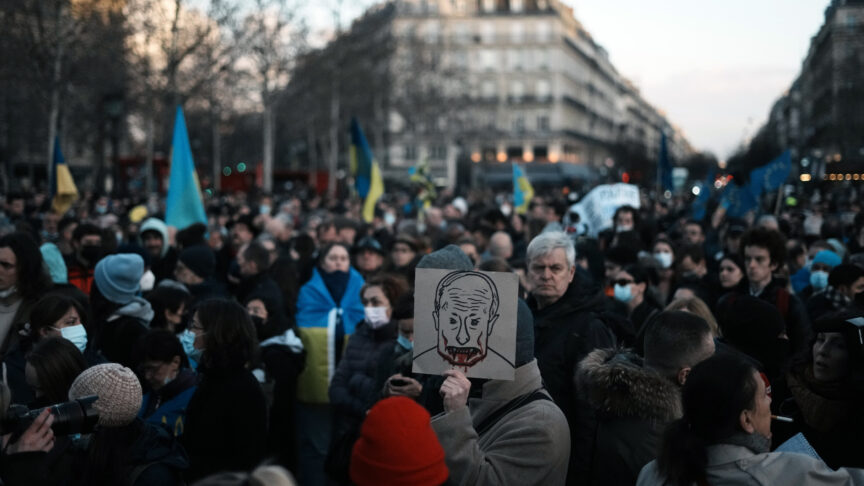
The conflict in Ukraine will change Europe forever. Experts from across ECFR’s network of offices describe the view of the war from Berlin, London, Madrid, Paris, Rome, Sofia, and Warsaw.
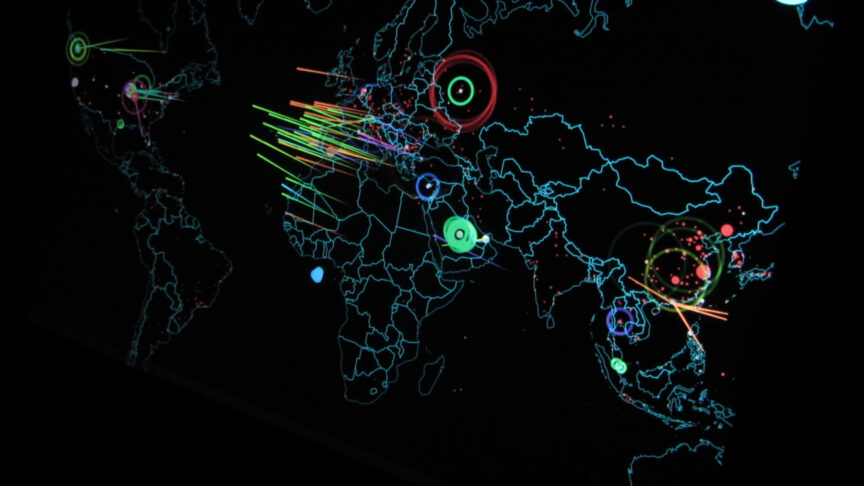
The EU cannot play a direct military role in Russia’s hybrid war against Ukraine. But, through its support for Ukraine in the digital realm, the union can establish itself as a leader in global tech geopolitics.
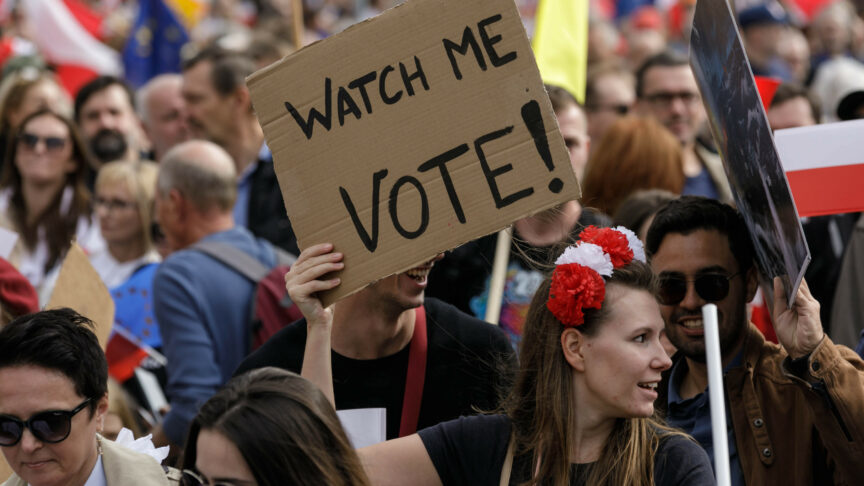
Mark Leonard welcomes José Ignacio Torreblanca and Piotr Buras to discuss recent developments in Spanish and Polish politics and their impact on Europe
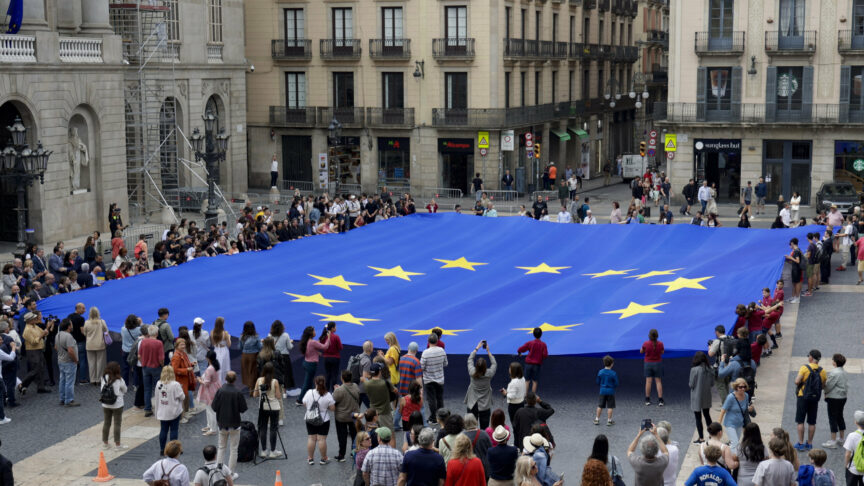
Mark Leonard welcomes the heads of ECFR’s national offices to discuss key players outside the traditional halls of European power

The EU is often described as a “regulatory superpower” benefitting from the so-called “Brussels effect.” But is the bloc also able to set its own rules and standards when it comes to new technologies?

What is the Western Sahara conflict is all about, and how will the most recent developments between Morocco and Spain influence this conflict?
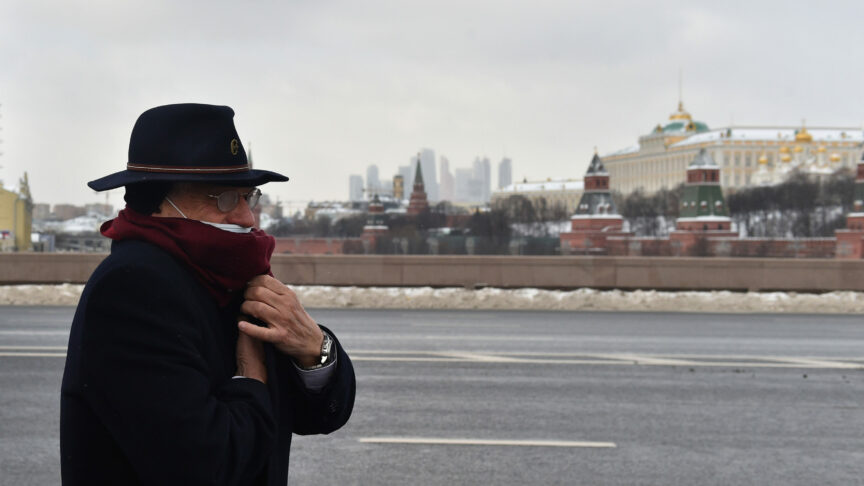
What lessons can be drawn from Josep Borrell’s controversial visit to Moscow?
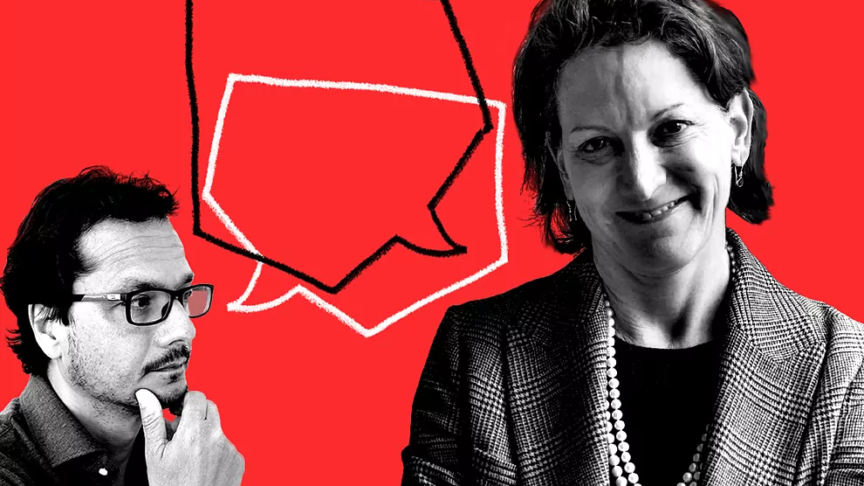
Head of ECFR’s Madrid Office, Jose Ignacio Torreblanca talks to the American historian, a Pulitzer Prize winner for Gulag, and expert on authoritarian populism about…
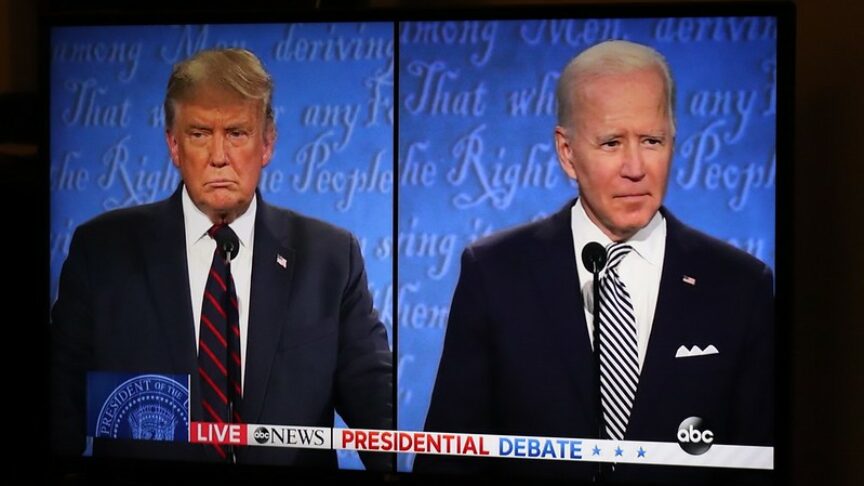
How much impact does the future US president have on the very concept of European sovereignty? Will the idea and initiatives to build more strategic autonomy in Europe be put back to bed with Joe Biden in the White House?
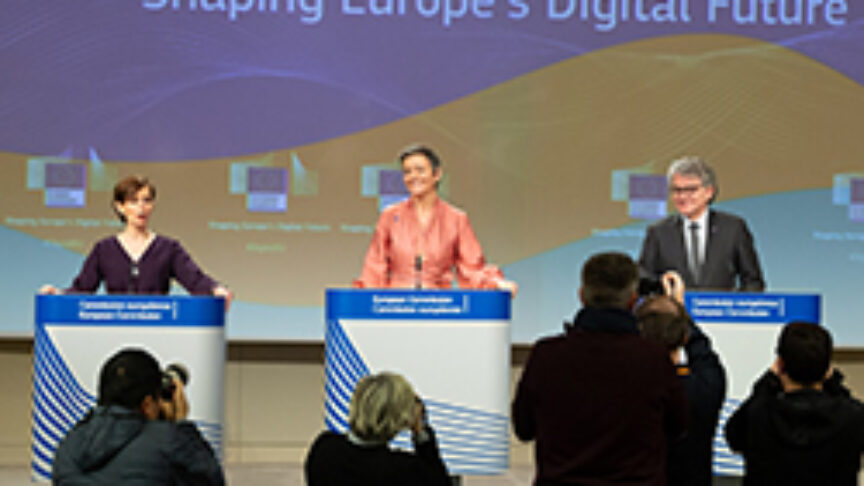
Europe’s digital transformation and sovereignty has become a question of existential importance. But what does it actually mean to be digital sovereign? Host Mark Leonard…
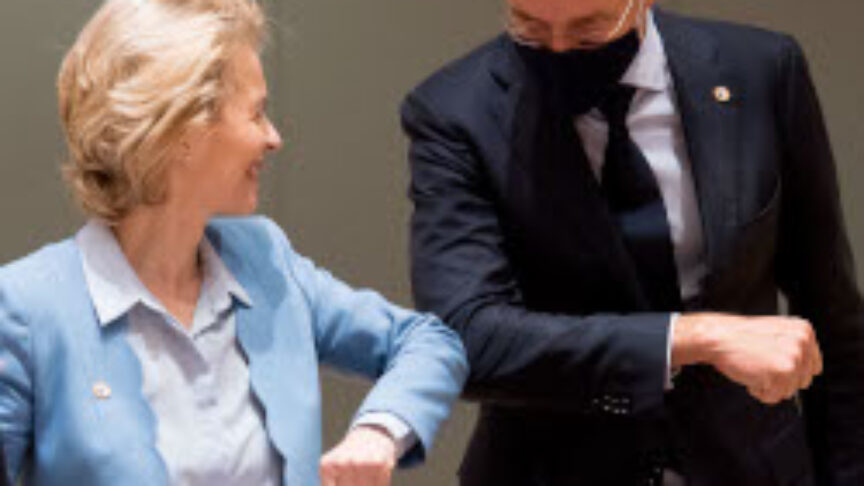
The over 90-hour European Council summit in Brussels ended with a deal on a €1.82 trillion financial package. What does…

The coronavirus crisis brought about financial hardship for the European Union, and many agree that a recovery fund would be needed to overcome it. In…
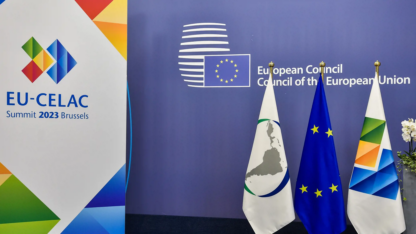
El 20 de julio ECFR celebró una reunión virtual a puerta cerrada para intercambiar perspectivas sobre los resultados alcanzados en la Cumbre UE-CELAC del 17-18 julio y la posterior hoja de ruta durante la Presidencia española del Consejo de la UE
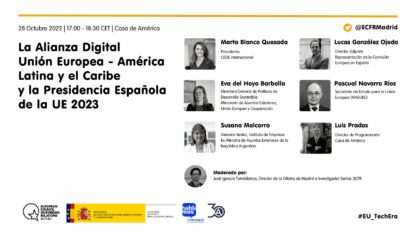
En su reunión (virtual) del 2 de diciembre de 2021, los jefes de Estado y de Gobierno de la UE y América Latina y el Caribe…
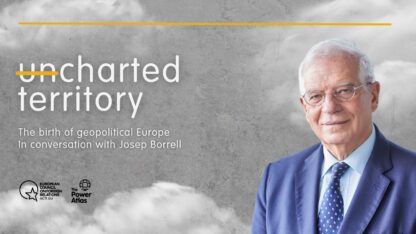
With the EU’s High Representative as our honoured guest, the panel will explore the birth of a geopolitical Europe and the new dimensions of European power with a focus on the tech, economic, and security terrains
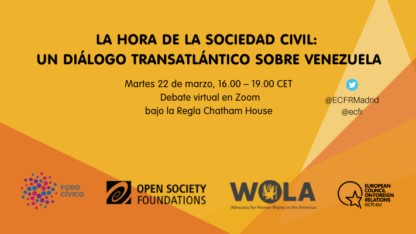
Este debate fue una iniciativa del Foro Cívico, de la Oficina en Washington para Asuntos Latinoamericanos (WOLA), el Open Society Foundations (OSF) y el European…
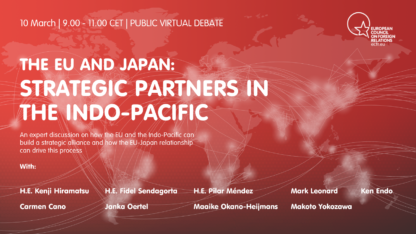
In collaboration with the Embassy of Japan in Madrid, ECFR has organised a public virtual debate to explore how the EU and the Indo-Pacific can build a strategic alliance and how the EU-Japan relationship can drive this process
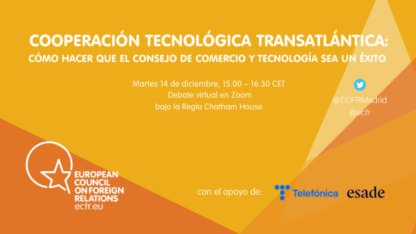
Esta es la primera reunión de nuestra iniciativa en ECFR diseñada para acompañar a las negociaciones oficiales del Consejo de Comercio y Tecnología (TTC) entre…
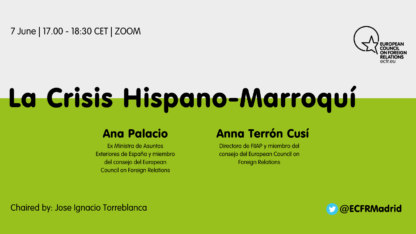
Con motivo de la escalada de tensión en las relaciones bilaterales entre España y Marruecos, y ante la previsible duración de la presente crisis, ECFR…
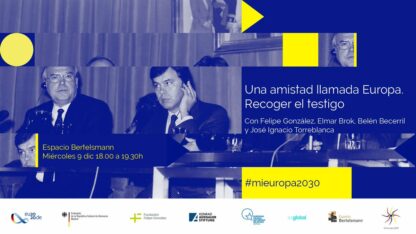
No hay aspiraciones colectivas sin inspiración, ni futuro sin memoria. Seguir construyendo Europa sobre relaciones de confianza es hoy más necesario que nunca.
